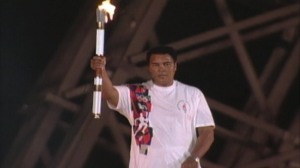What to do when your child has a concussion
© 2017 Roy Benaroch, MD
A concussion is a brain injury. A mild one, yes, but one that can lead to longstanding symptoms. What you do after a concussion, immediately and in the weeks that follow, can make a big difference in how your child recovers.
Though it’s a mild injury – there’s nothing to see on a CT, xray, or MRI – the effects of a concussion can be significant and uncomfortable for a child and family. Headaches, dizziness, trouble sleeping, and problems with concentration and mood are all common. And the average length of symptoms is three weeks. Many people experience symptoms for longer; some for much longer. What’s the best way to ensure that your child recovers as quickly as possible?
Two recent studies help clarify the best steps to take. The first, from August 2016, looked at the immediate response to a concussion. The authors compared teenage athletes who had a concussion, looking at a group that was immediately taken out of the game versus a group that continued playing. The risk of having prolonged symptoms was about 9 times as high among athletes who kept playing after concussion. Bottom line: the first thing to do after even a suspected concussion is to take the player out of the game.
The second study looked at the week after the concussion, comparing teens who rested strictly versus teens who, after a few days, started doing light exercise again. The difference here wasn’t as big, but it was significant. Athletes who did absolutely nothing, and rested completely in the week after a concussion, were about 25% more likely to have prolonged symptoms. It was better to start exercising and moving, at least a little, within a week after a concussion. Too much rest may make things worse, or at least prevent things from getting better.
To follow good concussion management, the first step is to make sure that players and coaches recognize when a concussion happens. Any time there’s a collision or blow to the head, and a child is dazed or confused afterwards – that’s a concussion. Concussions do not require a child to be completely knocked out. Just “having your bell rung” means that your brain bounced around in your skull, and it’s hurt. Coaches have to keep an eye on their players, and pull them out.
The best advice for the week after is to rest for a few days, but then start gentle activity again. If symptoms worsen, back off, but don’t wait until symptoms are 100% absolutely gone to try moving and exercising again. Though you should not let your child keep playing immediately after a concussion, too much rest for too long isn’t good either.
Earlier:
The best helmet to prevent football concussions
Protecting your child from concussions
Football and your child’s brain
Explore posts in the same categories: Medical problems
Leave a comment